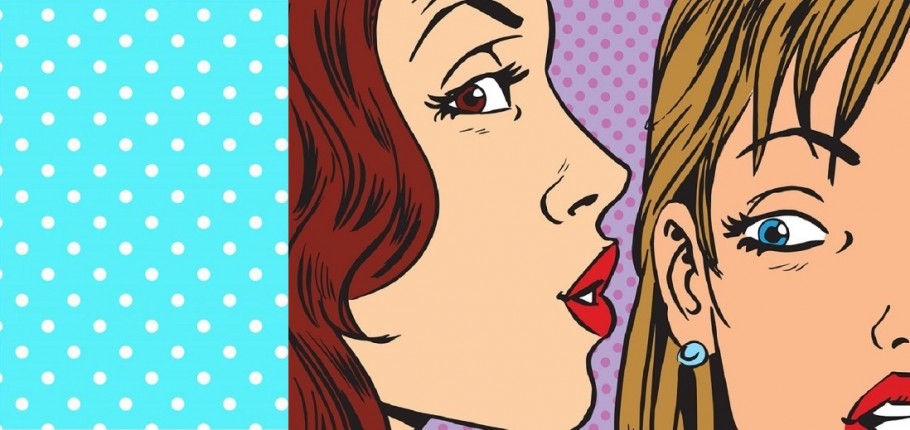
7 Tips for Writing Great Dialogue
“I hate the dialogue! People don’t talk like that!”
I’ve heard this complaint leveled against everyone from Aaron Sorkin to Diablo Cody to Quentin Tarantino. What some see as clever dialogue, others view as a screenwriter working hard to prove their intelligence.
So what’s the answer? Should you faithfully replicate how a person actually speaks?
No. Do not do that. Please.
If you’ve ever actually listened to a random person, you’ll notice that they constantly trip over their words. They stutter, they ramble, they lose their train of thought, and they drop in endless filler words like “uh” “uhm” and “like.”
Seriously, I once sat through a three minute presentation where the speaker said the word “like” thirty times. It was pretty darn distracting.
Creating a realistic environment is nice, but if you hand someone a screenplay with dialogue that features more “uh’s” than periods, your work is going to be realistically tossed into the trash.
So how does one write good dialogue? Here are some steps to get you started.
1. GET THROUGH THE FIRST DRAFT, FIRST
Everybody wants to nail it on the first try, but writing a script is a long process. Staring at that blank page on your computer screen is scary, and it’s hard to drag crazy ideas out of your head to faithfully recreate them on FinalDraft. But when you’re getting started, don’t worry about it. Just jot down the story and write dialogue that cuts to the chase. Be mechanical. Just have your characters communicate the necessary information to advance the scene. Style comes next.
2. THINK OUTSIDE THE BOX
Sometimes, the most obvious response isn’t the best one. In my first drafts, when Character A asks a question, Character B always answers it. But when I revise, I often find that it’s more interesting for Character B to ignore the question or turn the question back onto Character A or change the subject completely.
3. FIND YOUR TRAILER LINES
Really think about your characters, stories and themes. Try and come up with lines that your main character can say that totally sum up your movie’s vibe and – incidentally – will work perfectly in the trailer. One example from Die Hard: “Come out to the coast, we’ll get together, have a few laughs,” a simple line where John McClane mocks his expectations of his trip versus the action-packed reality. He could say that at almost any point in the film’s second act, yet it’s a perfect snippet to use to sell the movie. For good measure, here’s a line from Die Hard 2: “How can the same shit happen to the same guy twice?”
4. RAMBLE WHEN NECESSARY
At the start of Reservoir Dogs, Mr. Brown dives into an entire critical analysis of the Madonna song Like a Virgin. This information has no direct influence on the plot. You could argue that Mr. Brown’s reinterpretation of Madonna’s lyrics foreshadows how the song Stuck in the Middle with You is repurposed as a horrific threat, but let’s look at the immediate effects. The screenplay establishes the gang of thieves as a regular group of guys obsessed with pop culture and sex. As the scene continues with Mr. Pink refusing to tip the waitress, the gang feels like real people having the same arguments and conversations that a typical viewer does. If the movie started with the crew planning their heist, their characters would be more distant, and the audience wouldn’t feel as connected.
So go off-topic with purpose.
5. FIND A CLEVER TURN OF PHRASE
There are a lot of words in the English language. Every now and then, you’ll stumble across a combination that’s actually unique. And that’s exciting! It’s fun to write, it’s fun for the actor to say and it’s fun for the viewer to hear. In an episode of my audio play Beyond School (now available on iTunes), I had the lead actress use the phrase “indigenous hippopotamus population.” A Google search of the entire internet finds those three words used in that order one time. That’s neat. Compare that to “spiders on my face” – 10,500 results.
Remember that scene in Garden State when Sam describes how great she feels when she does something that no one has ever done before? It feels good to innovate, however small. And if you do it really good, your phrase will become forever linked with you. I have no idea if the phrase “flux capacitor” existed before 1985, but I know I’ll forever associate it with Back to the Future.
6. AVOID ON-THE-NOSE DIALOGUE
How often do you walk into a room and announce, “I’m moderately happy today!” Not often. You’re more likely to shower others with compliments and make nice observations. And if you’re in a bad mood, you’re not going to say, “I’m down in the dumps.” You’re going to avoid conversation and insult people around you.
Often, what a character says isn’t as important as why they’re saying it. For example, the line “I love lamp” in Anchorman is complete nonsense, but it’s funny because Brick is trying to participate in a conversation even though he’s completely out of his depth. Imagine if he prefaced his statement with “I’ve never been in love with a woman, but…” – that just takes the air out of the balloon.
7. READ YOUR DIALOGUE OUT LOUD
This is the most important thing. If you can’t say your words, how is an actor supposed to? Even better, record yourself saying the dialogue and listen back to it. If it sounds unnatural and weird and gross, better get to rewriting.
On the set of Star Wars, Harrison Ford became so frustrated with his convoluted dialogue that he told George Lucas that “you can write this shit, but you sure as hell can’t say it.” Things mostly worked out okay with that situation, but don’t press your luck.
Wanna Learn More About Screenwriting?
Check Out Elliot’s RRF Hangout: Script Workshop



